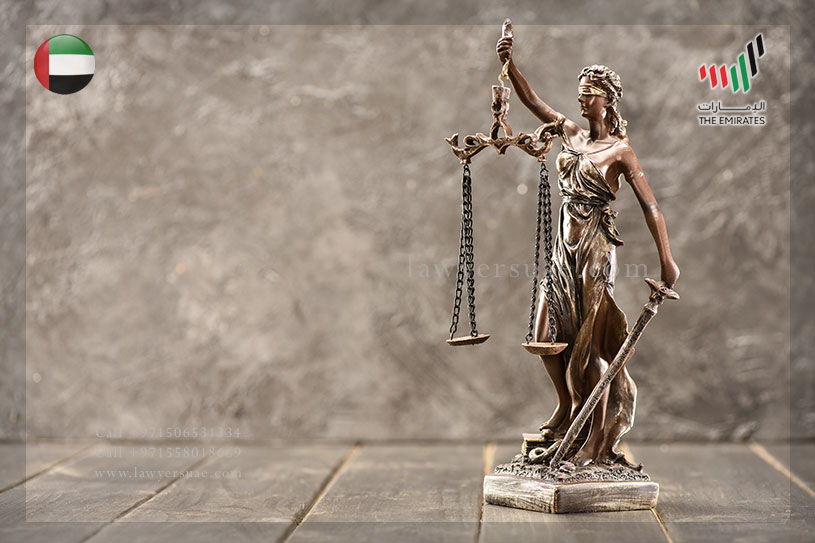In a ground-breaking turn of events, the United Arab Emirates (UAE) has granted legal discretion to potentially waive deportation in cases of cybercrime. This remarkable development was elucidated in the critical analysis of a judgment by the UAE Courts, casting a new light on the future of cybercrime jurisprudence in the region.
UAE Cybercrime Law
Despite the typical legal consequences, the court, in an unforeseen move, ruled that deportation was not an automatic outcome, opening the door to case-by-case evaluations.

The Conventional Penalty Scenario
Historically, a criminal conviction for cybercrime in the UAE invariably resulted in deportation for foreign nationals. The harshness of such penalties often left little room for judicial flexibility. However, the recent court ruling showcases an unprecedented shift, suggesting that a more nuanced approach is emerging in the region’s legal landscape.
The Case That Sparked Change
The groundbreaking change took root in an unusual case involving a European national charged with cybercrimes. Despite the typical legal consequences, the court, in an unforeseen move, ruled that deportation was not an automatic outcome, opening the door to case-by-case evaluations.
Tracing the Legal Grounds
To comprehend the far-reaching implications of this judgement, we must delve into the fundamental precepts of UAE Cybercrime Law. As per Federal Law No. 5 of 2012, cybercrimes encompass a broad range of offences, punishable by monetary fines, imprisonment, and, typically, deportation for non-UAE citizens.
It is important to note that the UAE Cybercrimes Law was amended by virtue of Decree No. 02 of 2018 issued by the President, His Highness Sheikh Khalifa bin Zayed Al Nahyan. There will be updated provisions in Federal Decree-Law No. 05 of 2012 on Combating Cybercrimes.
Upon execution of the sentence adjudged, the court may decide the deportation of a foreigner who is convicted of any of the crimes specified in Federal Decree-Law No. 05, subject to the second paragraph of Article No. 121 of the UAE Penal Code.
In accordance with Article 20, anyone who insults others or attributes to an incident that makes others react with contempt on an electronic site shall be punishable by imprisonment or a fine of not less than Dh250,000 and not more than Dh500,000. The person will be deported for insulting or slandering public employees.
The Significance of Judicial Discretion
Nonetheless, the latest court verdict has redefined the traditional interpretations of the law. By stipulating that deportation was optional, the judiciary has boldly demonstrated its capacity for legal creativity and adaptability. It has underscored the essential role of the judiciary in interpreting laws in tandem with social contexts and individual circumstances.
The Outcome: A Symbol of Progressive Legal Evolution
This case is not merely an isolated incident; it represents a broader trend of progressive legal evolution. By showing a propensity for judicial discretion in cybercrime cases, UAE courts have created a precedent that has the potential to foster greater justice, fairness, and flexibility in the nation’s legal system.
Advertències i consideracions
Despite this significant shift, it is crucial to bear in mind that each case will still be evaluated on its unique merits. While deportation may no longer be a compulsory outcome, it remains a possibility in severe instances of cybercrime.
The Future Landscape of UAE Cybercrime Law
This landmark decision could have a significant impact on future cybercrime cases in the UAE. By vesting the judiciary with the discretion to waive deportation, it has laid the groundwork for a more adaptable and humane approach to legal punishment. However, the tangible impact of this change will only become clear as more cases are evaluated under this new perspective.
Consideracions finals
In conclusion, the recent shift in UAE’s cybercrime law showcases a promising move towards a more balanced and contextually-sensitive legal system. The newfound flexibility in penalties could indeed symbolize a major breakthrough in the realm of cybercrime jurisprudence in the UAE. However, as with all such revolutionary legal developments, the full ramifications will unfold over time. All eyes are now on the future judgments of UAE courts, as they continue to navigate this uncharted territory.


